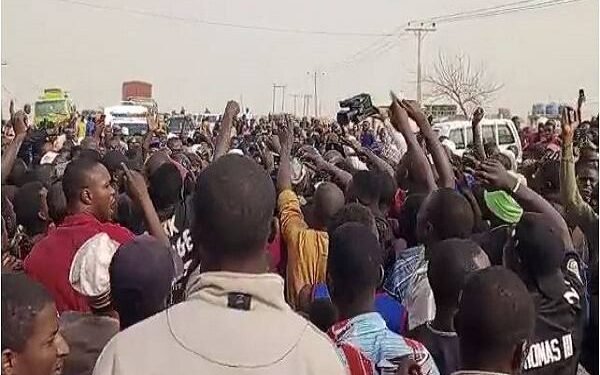By Jude Michael
As the economic hardship in the country continues to bite harder, residents of Minna, the capital of Niger State, last Monday morning, stormed the streets, blocking major roads in the city to protest the high cost of living.
Women and young people among the demonstrators were heard shouting protest songs while police officers and other security personnel observed the situation.
The protesters said that the increase in food prices and the inadequate response from the government compelled them to block main roads to draw the attention of the authorities.
Niger Deputy Governor, Yakubu Garba, addressed the protesters and stated that the administration understood the suffering and difficulties that families were going through at the moment.
He also added that the government was working towards lowering the cost of living and reducing the effect of the petrol subsidy removal.
In a bid to disperse the protesters who refused to vacate the road, policemen fired gunshots.
As early as 7am on Monday, a group of women blocked Minna-Bida Road at the popular Kpakungu Roundabout to express their grievances over the rising cost of food items.
In Kano, a 50kg bag of sugar at Singer Market is now selling at N73, 000 as against N62, 000 sold in early January.
ADVERTISEMENT
They were later joined by men, who stopped vehicles from moving.
Efforts by the police to control the crowd almost resulted in violence as protesters asked police to leave, forcing the police to fire several shots in the air.
One of the youths, Ibrahim Gana, said rice was sold at the cost of N2, 000 per mudu at Minna markets, while maize was N1, 000 per measure.
‘The Federal Government needs to take action to reduce the hardship being faced by the poor Nigerians. Things are becoming unbearable,’ he said.
The spokesperson of the Niger State Police Command, DSP Wasiu Abiodun, could not be reached as at the time of filing this report.
There has been growing angst among Nigerians over the rising prices of essential commodities such as rice, flour, sugar and cement, particularly in Kano, Kwara, Ebonyi, Oyo, and Lagos states; as well as Abuja.
It is feared that the dire times may lead to further economic and social instability, with the spate of kidnappings already high, including in the Federal Capital Territory of Abuja.
A bag of cement, which was N5, 500 in the beginning of January 2024, rose to N7, 300 as of Thursday.














































